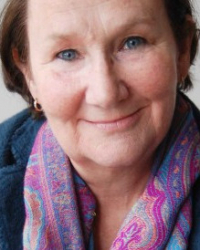Thinking and why it's important to do it
This may seem like an odd title because we think all the time don’t we? However, it is a subject I return to time and again in my reflections about what is said to me during a counselling session. People say to me: “You tell me how important it is to think but I don’t know how to think and what to say. Even if I can tell you what I’m thinking, how will that help me to feel better?”

This is a question I have had put to me in many guises. A surprising amount of people I see find fault with others but don’t feel it’s at all important to understand their own motivation and feelings; what’s going on inside them. It’s always much easier to blame others.
I want to run through a few ideas about how important thinking is in order to place it at the centre of the therapeutic process. I am not touching here on the obvious importance of feelings and sensations – that is for another time.
First of all, thinking is the opposite to doing. It is the way in which we get to know what’s going on inside us. The kind of thinking I’m talking about doesn’t mean what do we think about climate change (though obviously this is of huge importance). The thinking I mean is the curiosity about what’s going on inside us. Being curious about oneself is important; it means that we are engaging in the ideas going on in our heads; we are constantly interpreting, judging, making connections to others.
Thinking involves us in a real relationship with ourselves, the person we often try to avoid. This is why we spend a lot of our time doing things because it cuts down on the amount of time we spend thinking. We can then ignore the doubts we have, the loneliness we feel, the envy and shame we experience. Thinking can help us to organise and structure our experience and we can plan and learn from it.
We end up ignoring ourselves totally if we fill every waking moment with things to do. Constantly staying busy, without a moment to ourselves means that we are unable to process what’s happening to us. It’s a way of running away, of putting on a mask of busyness. It means that we never experience real happiness because we can’t contemplate the opposite: sadness, emptiness and loneliness that are part and parcel of normal everyday life.
When we have spent years avoiding having to think it is very difficult to start. We avoid it for fear of facing up to pain but we can practice by simple things: having a coffee date with ourselves, structuring the shape of our day, having a walk outside.
We then begin to notice patterns, to challenge what we have put up with in our own behaviour. Why do I always say no to things, why am I always so ready to blame others or why do I always put up with feeling that I can’t be by myself, why am I always upset so much when people cancel on me? Am I trying too hard to be liked? We wake up to who we are and can then make decisions about who we want to be.
When we have made the decision to come to therapy, thought processes get boosted; we can take another look at things we have overlooked or missed. We’re all encouraged not to think, to be mindless.
It’s a magical thing when I see people start to think and take charge. They move from confusion to a realisation that they have the inner power to chase away the things that they have allowed to control them. The examined life is a life worth living. We all want the same things: love, feelings of self- worth but each of us has a different story which has taken us far away from these things. We have to tell the story first and then we can make our way to a more thoughtful way of living.

Find the right counsellor or therapist for you
All therapists are verified professionals
